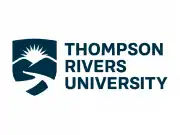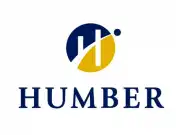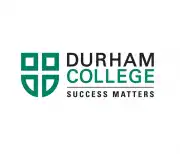Science and Engineering Programs in Canada for International Students
- Advantages of Studying Natural and Exact Sciences in Canada
- Formats and Levels of Natural and Exact Sciences Programs in Canada
- Top Universities for Natural and Exact Sciences in Canada
- Additional Universities with Natural and Exact Sciences Programs
- How to Apply for Natural and Exact Sciences Programs in Canada
- Required Documents for Natural and Exact Sciences Programs in Canada
- Tuition Fees for Natural and Exact Sciences Programs in Canada
- Scholarships and Grants for Natural and Exact Sciences in Canada
- Career Prospects After Studying Natural and Exact Sciences in Canada
- Is Studying Natural and Exact Sciences in Canada Worth It?
- Frequently Asked Questions

Bachelor of Science - Economics and Mathematics
Thompson River UniversityCombine the power of game theory, financial tools, and study to create a super degree.
A mathematics and economics major trains you to use, mathematics, economic tools and research data to make sense of the world. You can make forecasts and recommendations to help organisations better their…

Bachelor of Science - Environmental Chemistry
Thompson River UniversityInvestigate the chemical processes that occur in the environment as a result of human activities, such as metropolitan air and water pollution, ozone depletion, the production of toxic substances from chemical waste, the prevalence of pesticides, and climate change. Learn the basics of assessing human…

Bachelor of Science - General Science
Thompson River UniversityThe Faculty of Science is dedicated to providing its students with a high-quality education that emphasizes individual attention, freedom of choice, and adaptability. In the Bachelor of Science program, students can anticipate to gain practical, hands-on experience in a variety of science disciplines…

Bachelor of Science - Mathematics
Thompson River UniversityLearn about practical uses in a variety of fields, including physical and life sciences, finance and economics, computing and information theory, social sciences, and even fine arts. Gain a grasp of math as the science of patterns, which have evolved from roots in basic arithmetic to a complex language.Mathematics…

Bachelor of Science - Physics
Thompson River UniversityCombines rigorous training in physical world ideas and concepts with hands-on experience in electronics, computing, data acquisition, optics, and other basic subjects. A solid foundation for students to expand their knowledge in applied science and technology areas.
Graduates are employed in…

Bachelor of Arts - Mathematics
Thompson River UniversityDo you appreciate solving problems and solving puzzles? Do you understand the details and flow of an argument? Do you enjoy reasoning logically? Do you frequently attempt to formulate questions in mathematical terms?
Investigate the practical applications of mathematics in a variety of fields,…

Bachelor of Arts - Mathematics and Economic
Thompson River UniversityEnter the business world with in-demand abilities, or prepare for graduate studies in economics or finance.
Are you fascinated by the mathematics that underlies our economies? Do you find sophisticated mathematical models that forecast economic behaviour fascinating?
If you're…

Diploma - Biotechnology
Humber College Institute of Technology & Advanced Learning, Toronto, CanadaHumber's Protection, Security, and Investigation diploma program prepares you to attract companies in the booming professions of private/corporate security and public safety.
You will learn from industry specialists how to conduct investigations, criminal and intelligence analysis, security…

Certificate - Conflict Resolution and Mediation
Durham CollegeExperts in resolving conflicts are in great demand in many different marketplaces. This curriculum prepares students to analyze, resolve, and communicate conflicts in a variety of contexts, including the workplace, communities, and families. Graduates are able to negotiate, mediate, and settle conflicts…

Diploma - Behavioural Science Technician
Durham CollegeBehavioural science technicians are in greater demand as more Canadians look for evidence-based treatments to address a wide range of behavioral problems. This multidisciplinary curriculum will suit students who are motivated to assist others live better lives and have an interest in human behavior.
Through…
Advantages of Studying Natural and Exact Sciences in Canada
Canada is one of the world's leading countries in terms of education quality, scientific research, and innovations in natural and exact sciences. Key advantages include:
- High level of education and scientific research. Canadian universities consistently rank high in global rankings for "natural and exact sciences."
- Large number of English-taught programs. Over 80% of natural and exact sciences programs in Canada are available in English, making them convenient for international students.
- International recognition of diplomas. Graduates of Canadian universities successfully find employment in Canada, the USA, Europe, and other countries.
- Access to modern equipment and laboratories. Universities are equipped with innovative research centers and platforms.
- Safe and comfortable country for living. Canada is known for its high standard of living and tolerance toward international students.
Formats and Levels of Natural and Exact Sciences Programs in Canada
International students can choose from the following levels and formats of study:
- Bachelor's degree (Bachelor of Science, Bachelor of Applied Science) — 3–4 years, foundational knowledge in the chosen discipline.
- Master's degree (Master of Science, Master of Applied Science) — 1.5–2 years, focused on scientific research or practical skills.
- Doctoral studies (PhD) — 3–5 years, aimed at conducting independent research and preparing scientific publications.
- Internship and cooperative programs (Co-op) — combining studies with paid internships at companies.
- Online and hybrid formats — remote or blended learning options are available for certain disciplines.
Top Universities for Natural and Exact Sciences in Canada
| University | Program | Cost for International Students (CAD/year) | Global Ranking | Comment |
|---|---|---|---|---|
| University of Toronto | B.Sc Physics, Chemistry, Math | 40,000–50,000 | ~25 | Leader in Nobel laureates, advanced research facilities. |
| University of British Columbia | B.Sc Biology, Environmental Sci | 30,000–40,000 | ~34 | One of the largest campuses, strong environmental and biomedical research. |
| McGill University | B.Sc Biology, Physics, Chemistry | 35,000–45,000 | ~35 | High international ranking, collaboration with global research centers. |
| University of Waterloo | B.Sc Math, Computer Science | 30,000–40,000 | ~60 | Known for strong math and computer science programs, active internships. |
| University of Alberta | B.Sc Physics, Environmental Sci | 25,000–35,000 | ~112 | Leader in energy and environmental studies. |
Additional Universities with Natural and Exact Sciences Programs
| University | Program | Cost for International Students (CAD/year) | Global Ranking | Comment |
|---|---|---|---|---|
| Simon Fraser University | B.Sc Computer Science | 25,000–35,000 | ~318 | Focus on IT and research. |
| University of Guelph | M.Sc Chemistry, Biochemistry | ≈20,000 | 231–300 | Strong programs in biochemistry and agricultural sciences. |
| University of Calgary | B.Sc Environmental Sciences | 24,000–36,000 | ~182 | Focus on environmental sciences and energy. |
| Dalhousie University | B.Sc Biology, Marine Sciences | 20,000–36,000 | 201–250 | Marine research and biology, unique geographic location. |
| Memorial University of Newfoundland | B.Sc Biology, Environmental Science | 18,000–25,000 | ~500–600 | Known for strong ecology and biology programs, actively participates in Canadian university collaborations in natural sciences. |
How to Apply for Natural and Exact Sciences Programs in Canada
The application process includes several steps:
- Choosing a program and university. Evaluate the field, cost, and requirements.
- Language proficiency tests. Most programs require IELTS (minimum 6.5–7.0) or TOEFL.
- Submitting an application via the university website. Deadlines usually range from fall to spring.
- Providing required documents. Diploma, transcripts, test scores, statement of purpose, and recommendation letters.
- Interview. May be required for master's and PhD programs.
- Receiving an admission decision. Typically within 2–3 months.
- Visa application and proof of financial capacity.
Required Documents for Natural and Exact Sciences Programs in Canada
A standard set of documents is required for admission:
- High school diploma or higher education degree.
- Translated documents in English or French.
- IELTS, TOEFL, or Duolingo certificates.
- Statement of purpose outlining interests in natural and exact sciences.
- Recommendation letters from teachers or academic supervisors.
- Resume (for master's and doctoral programs).
- For research programs—a description of the proposed research work.
In some cases, proof of financial capacity and a medical certificate may be required.
Tuition Fees for Natural and Exact Sciences Programs in Canada
Tuition fees vary by university and program level:
- Bachelor's: from 25,000 to 50,000 CAD per year.
- Master's: from 15,000 to 40,000 CAD per year.
- PhD: from 10,000 to 25,000 CAD per year (often with grants available).
Additional expenses:
- Housing: 8,000–18,000 CAD per year.
- Food: 3,000–5,000 CAD per year.
- Transportation and living expenses: 2,000–3,000 CAD per year.
The average total cost of one year (tuition + living) is around 50,000–75,000 CAD.
Scholarships and Grants for Natural and Exact Sciences in Canada
Academic Scholarships
- Vanier Canada Graduate Scholarships (PhD): up to 50,000 CAD per year.
- Canada Graduate Scholarships (Master's): 17,500 CAD per year.
- Ontario Graduate Scholarship (Master's): 5,000 CAD per semester.
Financial Aid
Many universities provide financial support to students with limited funding, regardless of citizenship.
Special Scholarships
- Schulich Leader Scholarships — up to 120,000 CAD for STEM undergraduates.
- Mitacs Globalink Research Internship — paid internships for upper-year students.
University Grants
Institutions offer their own grants, partially or fully covering tuition and living expenses.
Key Selection Criteria
- GPA of at least 85–90%.
- High English proficiency (IELTS 6.5–7.0 or higher).
- Academic and research achievements.
- Leadership qualities and active project participation.
Application Deadlines
- Undergraduate and scholarships: October–January.
- Master's and PhD: January–April.
- Research internships: February–March.
Career Prospects After Studying Natural and Exact Sciences in Canada
Graduates of natural and exact sciences programs are in demand in Canada and abroad. Top career paths include:
- Research engineers.
- Biotechnologists and biomedical specialists.
- Environmentalists and sustainability experts.
- Computational mathematicians and data analysts.
- Physicists and chemists in research labs.
- IT specialists with a scientific focus.
Top employers:
- IBM, Microsoft, Google (IT).
- Pfizer, Johnson & Johnson (biomedical research).
- Wood, Suncor, Shell (energy and environment).
- Canadian research centers.
Thanks to co-op programs, students gain work experience and job offers during their studies.
Is Studying Natural and Exact Sciences in Canada Worth It?
Canadian education combines high quality, diploma recognition, and comfortable conditions for international students. Compared to:
- USA — more expensive, higher competition, but more private universities.
- Europe — programs often in local languages, limited internships.
- Canada — optimal balance of cost, quality, and career opportunities.
Thus, Canada is one of the best destinations for natural and exact sciences education.
Frequently Asked Questions
1. What are the language requirements for natural and exact sciences programs in Canada?
Most programs require IELTS (minimum 6.5–7.0) or equivalent TOEFL scores.
2. Can international students work while studying natural and exact sciences in Canada?
Yes, students can work up to 20 hours/week during studies and full-time during breaks.
3. How much do tuition and living expenses cost for natural and exact sciences programs in Canada?
The average cost is 50,000–75,000 CAD per year, including tuition, housing, and daily expenses.
4. Which natural and exact sciences specializations are most in demand after graduation in Canada?
High demand for biotechnologists, engineers, IT specialists, environmentalists, and researchers.
5. What documents are needed to apply for natural and exact sciences programs in Canada?
Diploma, language test scores, statement of purpose, recommendation letters, and resume.
6. Are scholarships available for natural and exact sciences programs in Canada?
Yes, academic, research, and special scholarships, as well as financial aid, are available.
7. How competitive is admission to natural and exact sciences programs in Canada for international students?
Competition varies by university, but a high GPA, language skills, and motivation significantly improve admission chances.